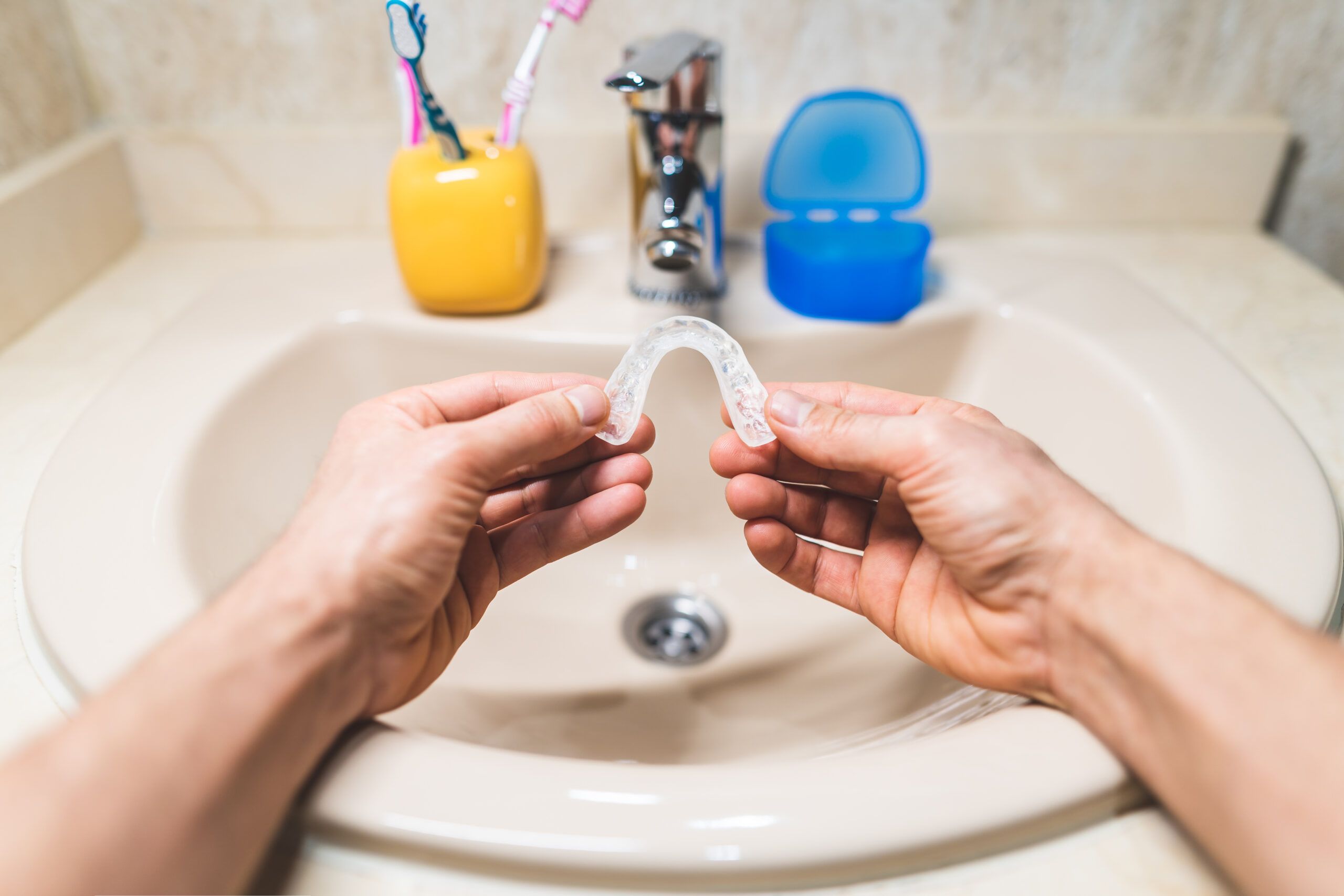
How Do You Know if You Would Benefit From A Night Guard?
Have you been told you grind your teeth at night?
Do you wake up feeling unrested and with chronic headaches? Do you experience face, neck, shoulder muscle or tooth soreness?
You may be experiencing a condition called bruxism, which is characterized by clenching or grinding of the teeth. Many patients may be unaware that they experience bruxism or that they could benefit from wearing a night guard when they sleep.
There are many causes of bruxism including stress, anxiety or underlying medical conditions. Regardless of the cause, a custom-made night guard from your dentist can help protect your teeth from damage while you sleep as well as prevent discomfort.
Signs You May Benefit from a Night Guard
TMJ Disorder
TMJ is an acronym for the temporomandibular joint, which is the joint responsible for jaw movement. TMJ disorder is common for patients who experience bruxism. The pressure we put on our teeth also affects our jaw. This can lead to inflammation in the joint with associated popping, clicking, tightness or discomfort when opening and closing the mouth. Patients who experience frequent jaw pain or notice clicking and popping from their TMJ should discuss those symptoms with their dentist. Patients are often unaware that they are grinding their teeth in their sleep, and symptoms of TMJ disorder can signify that there is a problem. If your dentist has diagnosed you with TMJ disorder, they will often recommend sleeping with a night guard to alleviate symptoms and damage from grinding in the future.
Flattened or Worn Down Teeth
If your teeth appear flattened or worn, it may be a sign that you are grinding or clenching your teeth. Additionally, excess pressure on your teeth can cause cracks, broken restorations or broken teeth. This can lead to patients needing replacement fillings or dental crowns to repair damage and save teeth. Routine dental visits can help detect the early signs of tooth wear and treat issues before restorations fail or teeth break. Like all dental care, preventative solutions are the best choices for patients. If issues are ignored, teeth can get damaged to the point that they may not be able to be saved and instead need to be extracted.
Chronic Headaches & Fatigue
One of the drawbacks of nocturnal bruxism is that it disrupts sleep which can lead to people feeling less energized during the day. There are many reasons, however, why an individual might struggle to fall asleep or stay asleep and for that reason it is important to understand the accompanying symptoms of bruxism. The pressure put on your teeth can lead to other symptoms including migraines or headaches. Patients who struggle with night time grinding or clenching frequently experience jaw pain or headaches in the morning that may get better over the course of the day. If a patient is experiencing both disrupted sleep schedules and consistent headaches, they should consider talking to a dentist about bruxism and possible treatment with a night guard. Not only can a night guard help alleviate the symptoms of bruxism, but it can also protect your teeth and jaw from the long-term effects.
Schedule an Appointment with Your Dentist for a Night Guard Consultation
If you’re worried you may be experiencing bruxism in your sleep or often wake up with a tight,
sore jaw, Lindner Dental Associates can help. Our office in Bedford New Hampshire provides
full dental services including preventative care and custom-made night guards. Contact our
office for a consultation today.
Categories
Recent Posts






